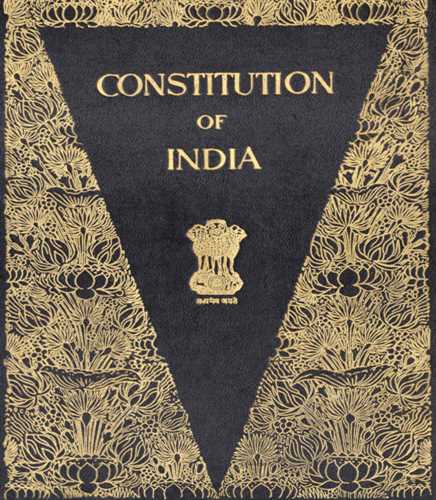Constitutional bodies are important bodies in India whose powers and authorities are derived from the
Indian Constitution.
They are specifically mentioned in the Constitution, which means they have articles dedicated to them.
Any changes to these bodies' mechanisms would necessitate a constitutional amendment.
Constitutional bodies include the Finance Commission, the UPSC, the Election Commission, the CAG, National Commissions for SCs and STs, and others.
The powers and authorities of constitutional bodies are derived from the Indian Constitution. They are mentioned in the United States Constitution. Because they derive their authority from the Indian Constitution, any modification to the mechanism of the constitutional bodies would necessitate a constitutional amendment.
The following is a list of constitutional bodies in India, along with the relevant article in the Constitution and other information:

Attorney General of India
Article in the Constitution - 76
Tenure and Removal - Serves at the pleasure of the President.
Additional Appointment - Yes
Powers
- An MP's Privileges
- All Indian courts have the right to an audience.
- Can attend both the Lok Sabha and the Rajya Sabha but cannot vote in either.
Comptroller and Auditor General (CAG)
Article in the Constitution - 148
Tenure and Removal - The office is held for six years, or 65 years (whichever comes earlier)
The procedure for removal is the same as for a Supreme Court justice.
Additional Appointment - No
Powers
- Accounts pertaining to the Contingency Fund, the Consolidated Fund of India and States, and the Public Accounts Fund of the States and the Centre are audited.
- Accounts advisory function to the President of the country.
Election Commission
Article in the Constitution -324
Tenure and Removal - Presently for 6 years or 65 years, whichever is earlier.
Additional Appointment - Yes
Composition - CEC/Chief Election Commissioner, Other Election Commissioners
Powers
- Elections in India must be free and fair.
- Registration of political parties
- Election supervision
National Commission for Scheduled Castes & Scheduled Tribes
Article in the Constitution -338 & 338-A
Tenure and Removal - 3 years
Additional Appointment - Yes
Composition - Chairman, Vice-chairman, 3 other members
Powers
- It functions as a quasi-judicial body.
- Reporting on and monitoring the implementation of constitutional safeguards for Scheduled Castes.
- It has the authority of a civil court.
National Commission for Backward classes
Article in the Constitution -338-B
Tenure and Removal - 3 years
Additional Appointment - Yes
Composition - Chairman, Vice-chairman, 3 other members
Powers
- Examine complaints and welfare measures affecting socially and educationally disadvantaged groups.
- It has the authority of a civil court.
Special officer for Linguistic Minorities
Article in the Constitution -350-B
Tenure and Removal - Pleasure of the President
Additional Appointment - Yes
Composition - Commissioner, Deputy Commissioner, Assistant Commissioner
Powers
- Monitoring and reporting on the implementation of linguistic minorities' constitutional safeguards.
Union Public Service Commission
Article in the Constitution -315 – 323
Tenure and Removal - Presently for 6 years or 65 years (whichever is earlier) whichever is earlier
Additional Appointment - The UPSC Chairman is not eligible for re-election. Other members are only eligible for appointments within SPSC and UPSC.
Composition -9 to 11 members
Powers
- All India Services recruitment, public services of centrally administered territories, Central services, advisory powers
State Public Service Commission
Article in the Constitution -315 – 323
Tenure and Removal - Presently for 6 years or 62 years, whichever is earlier